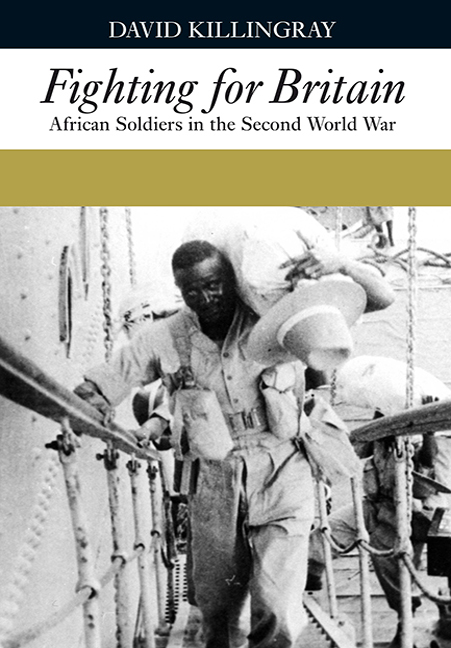Book contents
7 - Ex-servicemen & Politics
Published online by Cambridge University Press: 13 April 2017
Summary
‘What improvements may we expect to find in the Divisions and in our villages when we return?’
It is widely acknowledged that the Second World War constituted a watershed in the recent history of sub-Saharan Africa and that it marked either the end of the beginning or the beginning of the end of European colonialism in Africa. By 1945 the Western European colonial states had suffered defeat or siege and declined in political and economic power. In a pyrrhic victory, they were overshadowed by the two superpowers, the United States and the Soviet Union. By the end of the war the political balance in Africa had also changed. The colonial powers were still in charge – indeed, it was widely believed that their rule would continue for a very long time – but the seeds of change had been sown, increasingly during the war but also in the years preceding 1939. Within 15 years of the war's end a large part of Africa was either independent or well on the road towards that goal.
Official perspectives
During and immediately after the war, officials and observers understandably commented on the likely effects that exposure to modern warfare and overseas travel would have on the several hundred thousand African soldiers who had been enlisted. A few, mainly in the colonies, feared that on returning home the soldiers were likely to constitute a destabilising influence and could be a threat to future colonial rule. Lord Hailey, writing in 1941, said: ‘It is, of course, too early to judge of the full reactions of the present war on the African outlook, though they cannot fail to be far-reaching.’ In 1945, and based on his own firsthand observations, he reported that although ‘war experiences had a very marked effect on the troops themselves … their return had had less immediate effect on the structure of African society than many colonial authorities had anticipated’.The South African government's refusal to arm black troops was partly influenced by white public opinion but it also reflected fears about what messages this might give large numbers of Africans especially when they were removed from the narrow racial agendas of the Union.
- Type
- Chapter
- Information
- Fighting for BritainAfrican Soldiers in the Second World War, pp. 203 - 235Publisher: Boydell & BrewerPrint publication year: 2010



